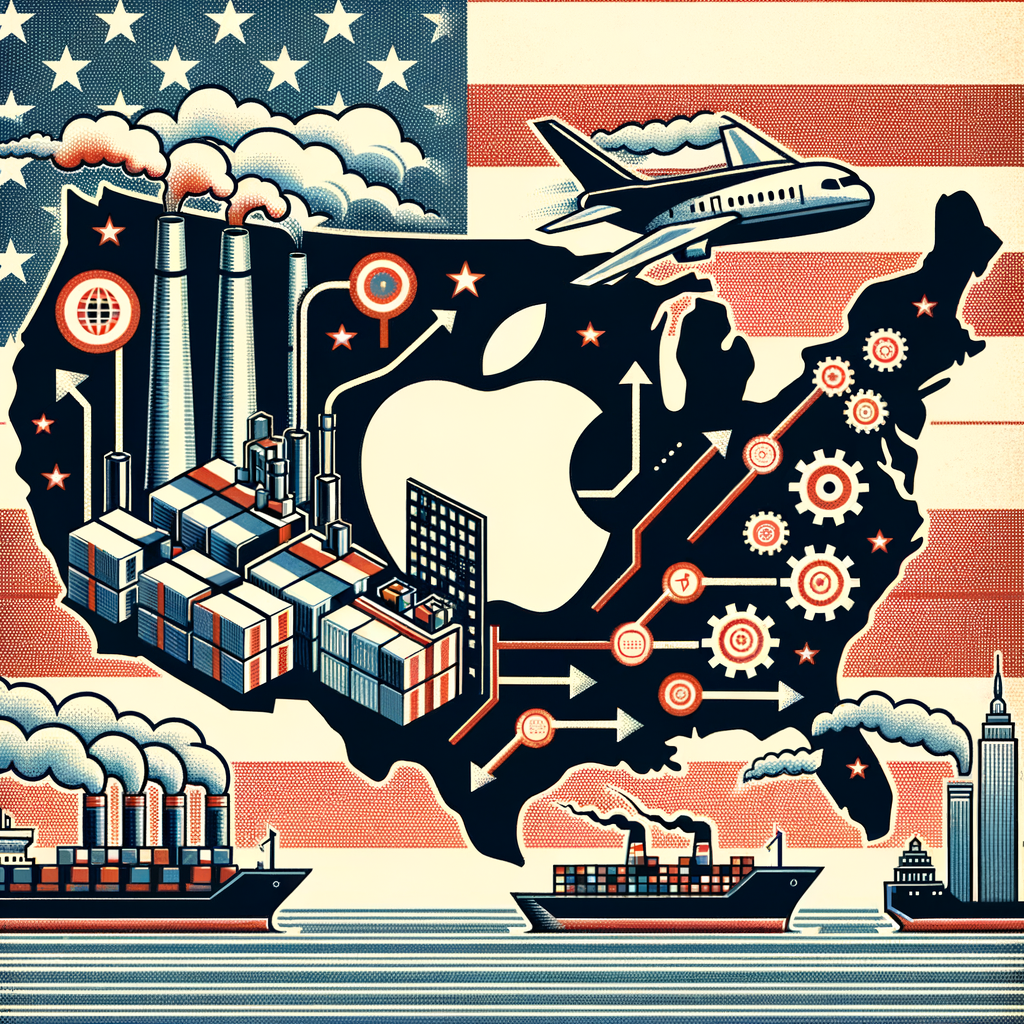Apple Pledges More U.S. Spending Amid India Tariff Hikes: What It Means for Government Contractors
Apple Inc. recently announced plans to increase its spending in the United States, a move that comes as the White House enacts new tariffs on goods imported from India. According to Bloomberg Intelligence analysts, these fresh investments could help “soften the White House’s ire” over Apple’s strategic shift toward manufacturing in India. This development carries plenty of implications for government contractors, particularly those intersecting with federal supply chain, technology, and procurement policies.
Background: Apple’s Strategic Shift to India Manufacturing
Why Apple Pivoted to India
In recent years, Apple has been steadily expanding its manufacturing footprint in India, aiming to diversify away from Chinese production amid rising geopolitical tensions. The Indian government has incentivized this shift through the Production Linked Incentive (PLI) scheme, which offers financial benefits to electronics manufacturers who invest in local production. Apple, through partners like Foxconn and Wistron, has significantly increased iPhone manufacturing in India to serve both domestic and global markets.
U.S. Concerns Over Offshoring
The company’s strategic pivot, while commercially sound, has drawn attention from U.S. policymakers. There is growing concern within the federal government regarding the offshoring of high-tech manufacturing capabilities that have national security and economic implications. The newly announced tariffs on Indian imports reflect this sentiment, aiming to rebalance trade and incentivize domestic manufacturing.
Apple’s New Pledge: An Attempt at Domestic Goodwill
Scope of the Investment
Apple has announced billions in additional investment in the U.S., targeting areas like data centers, R&D campuses, and supplier partnerships. These investments are in line with Apple’s broader commitment to contribute over $430 billion to the U.S. economy by 2026. The new spending could come in the form of:
– Advanced manufacturing support
– Workforce development in high-tech sectors
– Supply chain localization efforts
– Increased procurement from domestic small and disadvantaged businesses
Softening Regulatory Pressures
By boosting U.S. investment, Apple could reduce criticism over its India pivot. For federal project managers and contracting officers, this represents a high-profile case of balancing global supply chains with domestic policy pressures. Federal spending under the Infrastructure Investment and Jobs Act and the CHIPS and Science Act already demonstrates a preference for onshoring technology supply chains—a trend Apple appears eager to align with.
Implications for Federal and State Government Contractors
Opportunities in Local Sourcing and Domestic Manufacturing
As major corporations like Apple increase domestic investment, there are likely to be expanded opportunities for local contractors and suppliers. Government contract holders in sectors such as:
– Electronics manufacturing
– IT services and R&D
– Cybersecurity systems
– Construction and facility management for tech campuses
may see an uptick in subcontracting and direct contract opportunities.
Contractors registered in the System for Award Management (SAM) and certified under small business programs (e.g., 8(a), HUBZone, and WOSB) should actively monitor federal business opportunities associated with Apple’s expansions and partnerships.
Impact on Trade Compliance and Tariff Management
The new tariffs on Indian imports could affect contractors who rely on India-based goods in their supply chain. GSA Schedule contractors and federal suppliers should review their sourcing strategies to ensure compliance with the Trade Agreements Act (TAA), which may render certain Indian-made components non-compliant.
Companies involved in integrating Apple devices or solutions into government systems should pay attention to changes in:
– Import taxes
– TAA-approved country lists
– Procurement regulations concerning origin of goods
Federal Technology Strategies and Procurement Policies at a Crossroads
Reinforcing Domestic Supply Chain Resilience
The tension between Apple’s global strategy and the U.S. government’s focus on domestic self-reliance highlights an ongoing issue for federal acquisition professionals: how to balance innovation, cost-efficiency, and national interest. Recent federal guidance encourages prioritization of suppliers who bolster U.S.-based production and reduce reliance on potentially adversarial nations.
State Implications: Maryland’s Role in the Supply Ecosystem
For Maryland contractors, this is a strategic inflection point. As a hub for cybersecurity, biohealth, and advanced manufacturing, Maryland stands to benefit from increased tech investment in the U.S. Contractors in this region should establish relationships with upstream providers and look to participate in state-sponsored innovation grant programs, such as those offered through TEDCO and the Maryland Department of Commerce.
Conclusion: Aligning Strategy with National Priorities
Apple’s dual strategy—expanding in India while boosting U.S. investments—is emblematic of the complex environment in which federal contractors and policymakers operate. As the federal government uses tariffs and policy

